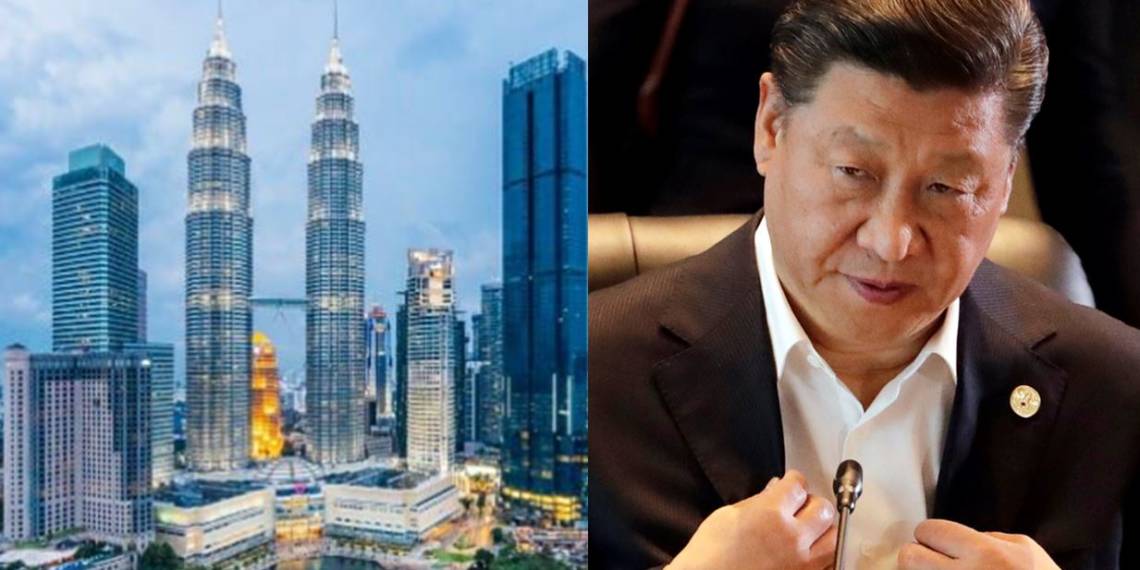Chinese investors are bearing the brunt of the backlash against the Chinese Communist Party’s belligerence, and the latest signs are coming from Malaysia. Chinese investors in the Southeast Asian nation are now preparing for a disappointing return from their overseas business expedition. Thousands of Chinese middle-class investors are selling off their properties in Malaysia. To many Chinese individuals, their Malaysian properties were their ‘second home’. But the changing circumstances are forcing them to make a difficult choice. In Australia too, Chinese investors are no longer the biggest foreign investor amid a plunge in property purchases, according to government data.
The Coronavirus outbreak-induced travel restrictions, military tensions in the South China Sea and a rising anti-China sentiment in the country have created a hostile business atmosphere for Chinese nationals in Malaysia. According to SCMP, many Chinese individuals have even opted to sell their homes remotely in Malaysia, rather than wait and watch when they will be allowed to return.
The changing circumstances in Kuala Lumpur have come as a bolt from the blue for Chinese investors and real estate developers who have invested in the Southeast Asian nation. Malaysia has been a top destination for many affluent Chinese investors since 2002. Kuala Lumpur had then launched Malaysia My Second Home (MM2H) programme, which offered long term visas of 10 years to foreign investors.
China had made the most out of this opportunity. And Johor, the Southernmost Malaysian state located close to Singapore, became the hotspot of Chinese real estate investments.
First, a number of Chinese investors started making Malaysia their ‘second homes’ and then Chinese real-estate developers also found a budding market to capitalise upon. SCMP has, for example, reported that Guangdong-based developer Country Garden claims to have invested around RM20 billion (US$4.83 billion) in the Southeast Asian nation.
However, things have gone downhill for Chinese investors in the Southeast Asian nation over the recent past. It all started with the Wuhan virus Pandemic. Malaysia does have a history of anti-China sentiment and the Wuhan virus proved to be the final straw.
In February, more than 400,000 Malaysians reportedly signed an online petition demanding a ban on Chinese travellers, while urging the government to “save our family and our children.” And then the Malaysian government itself suspended MM2H, in consonance with Malaysia’s policy of restricting the entry of foreign travellers amidst the ongoing Pandemic.
Travel restrictions and anti-China sentiment in Malaysia is forcing many Chinese nationals who were considering a second home in Malaysia to reassess their plans. Yet, thousands of Chinese investors already having properties in Malaysia find themselves in a conundrum.
Chinese nationals who returned from Malaysia amidst the Pandemic or those who were already residing in China while owning properties in Malaysia now stare at a bleak future. They don’t know when they will be able to visit Malaysia again, as neither the Malaysian citizens nor the Malaysian government seems to be very keen on letting Chinese travellers enter Malaysia.
And the business sentiment is always going to remain hostile for Chinese investors in Malaysia. Firstly, there is a rising aversion against China within Malaysia and secondly, Kuala Lumpur also might not be too keen to attract Chinese businesses given how the Dragon frequently bullies Malaysia in the South China Sea.
Chinese individuals are therefore selling their Malaysian properties remotely, incurring steep losses.
And then for the Chinese investors living within Malaysia also, the sentiment isn’t very encouraging. They had purchased high-value properties in Malaysia built by Chinese firms using mostly Chinese workers. But now these properties are recording a sharp price decline. While the supply of such Malaysian homes has shot up, there is no real rise in demand leading to extremely low prices.
Patricia Li, a Chinese investor owning a teahouse in Johor, said, “It’s quite depressing when you see social media posts [on WeChat] trying to sell a 48-square-metre [517 sq ft] apartment for only about 600,000 yuan (US$88,640). I spent more than 1 million yuan for the same type of unit in 2016.”
As such the big Chinese real estate developers who had invested heavily in Malaysia could now be facing a major catastrophe. The fresh inventories that they might have built for affluent Chinese families would become deadwood in absence of any consumer demand.
At the end of the day, Malaysia might just be the tip of the iceberg. China is actually facing similar hostility across the world. As more and more countries adopt an anti-China approach, Chinese individuals will find it hard to retain their overseas properties in absence of any deep business interests beyond China’s borders. ‘Sell and run’ might become the new norm for overseas Chinese investors. The downfall of the Chinese Communist Party is here and China’s overseas real estate market seems to be the latest victim.








